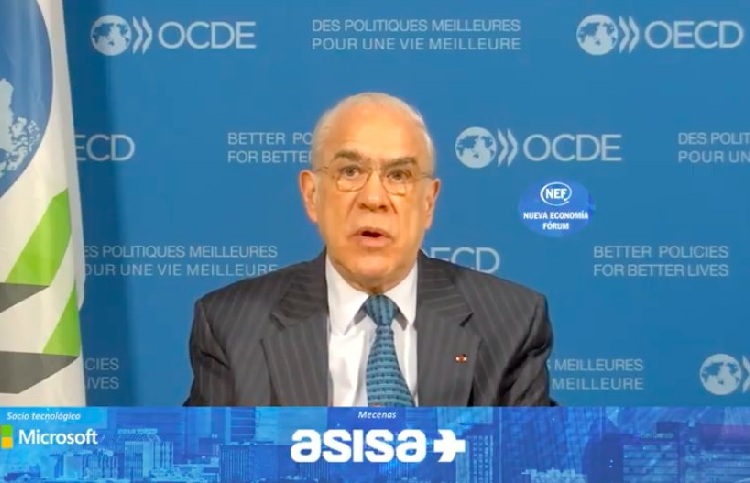The Diplomat
The Secretary General of the Organization for Economic Cooperation and Development (OECD), Ángel Gurría, declared yesterday that the European recovery fund after COVID-19 is an opportunity for the “modernization of the economy” in Spain and, in this sense, the plan launched by the Spanish Government last October “is going in the right direction”.
The economic impact of the virus “has been very severe” in Spain due to “the importance of the services and tourism sectors”, the “high percentage of small companies” and the temporary nature of employment in our country, declared the Mexican Ángel Gurría during his intervention in NEF Online, an informative meeting organized telematically by New Economy Forum.
For this reason, he continued, the 750,000 million of the European Fund for the exit of the crisis can not only help to finance “the ambition that is needed at this time” in Spain, “one of the countries with the greatest access” to these funds, but also represent “the opportunity to carry out a modernization of the economy in Spain”.
In this sense, according to the head of the OECD, the Recovery, Transformation and Resilience Plan announced last October by the Government of Pedro Sánchez “is going in the right direction” because 37% of the investment is directed to the ecological transition and 33% to digitization, which are joined by other items aimed at reducing inequalities. “These must be the vectors of a more resilient, greener and, above all, more inclusive growth”, in contrast to “the previous recovery” after the 2008 financial crisis, in which “many people were left out”, he added.
Regarding the global outlook, Angel Gurría said that the OECD foresees a “gradual but uneven” global recovery over the next two years, with 4% growth in 2021 and 2022, although “many countries, because of this new wave, are not going to recover the level they had at the end of 2019 until 2022”. Therefore, the priority at this time is to fight the pandemic, since the world will have to live with the virus “throughout 2021, making as much progress as possible with vaccines”, and “the faster we win the battle against the virus, obviously we will have fewer economic and social consequences”, he said.
In this regard, Gurría encouraged the EU, describing as “unexpected” the delay in the production of vaccines, “for different reasons”, by the multinational pharmaceutical companies Pfizer and AstraZeneca, and even described as “very serious” the possibility that 75% of the doses committed by the latter may not reach the EU. “The European authorities, supported by all leaders and health authorities, are holding the laboratories accountable and, at the same time, demanding that the laboratories comply with the contractual obligation”, he said. “We must continue with the collective effort” in Europe because “that is what promises better solutions”, he warned.







